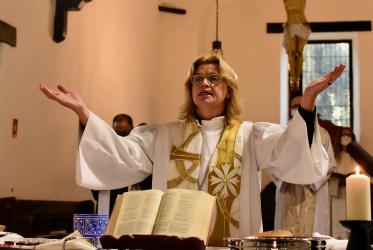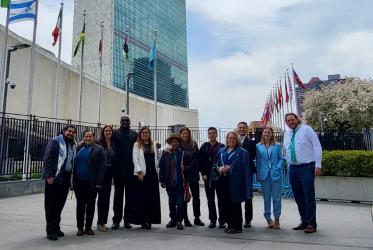Displaying 1 - 9 of 9
29 November 2022
Driven by God’s grace and a sense of duty
05 November 2020
WCC well-represented in Religions for Peace leadership
07 October 2019
Unity, solidarity and hope at core of Ecumenical Weekend
04 November 2018
Colombia peace accord brings both joy and concern
19 August 2016
WCC welcomes monitoring of ceasefire in Colombia
01 February 2016




